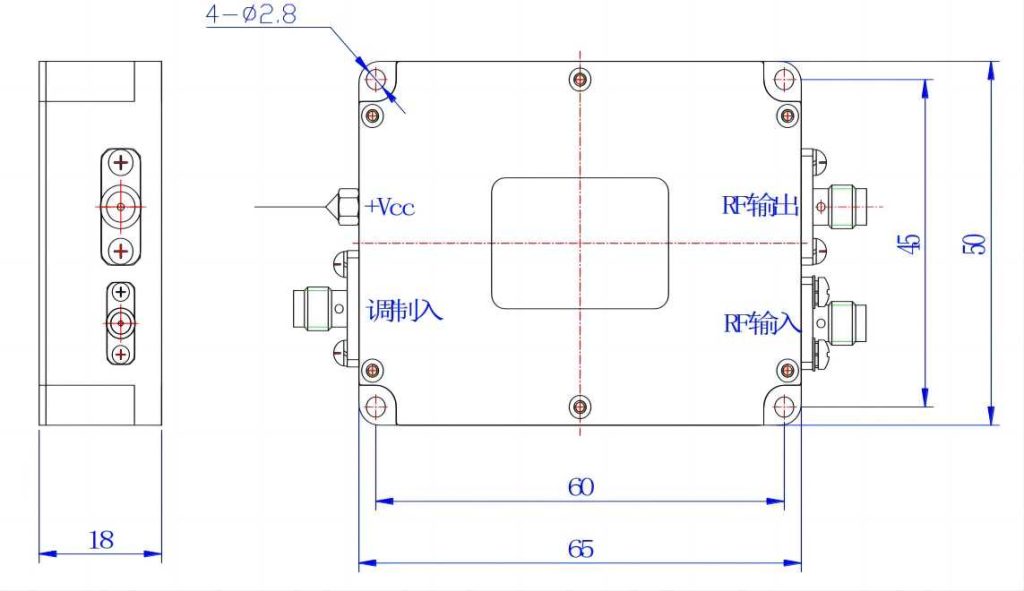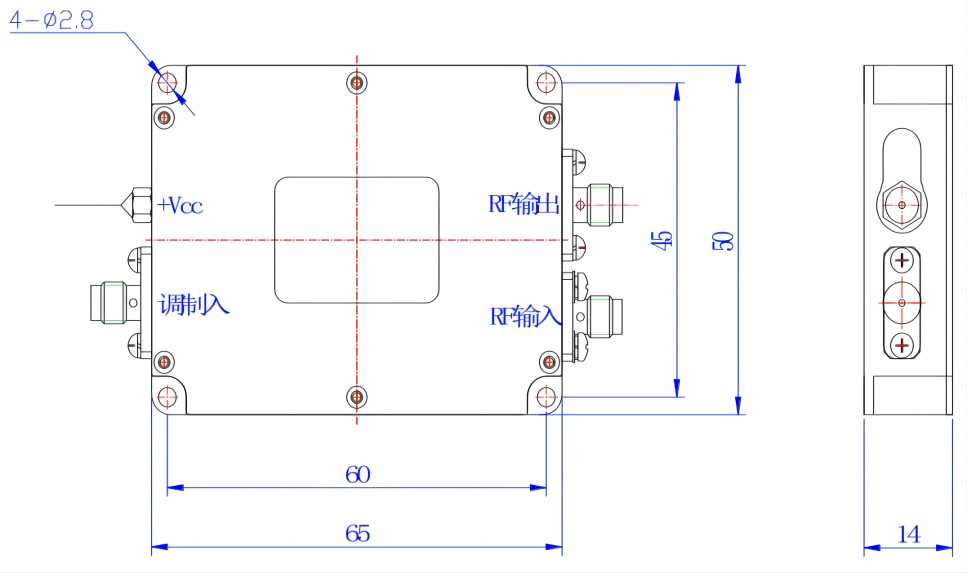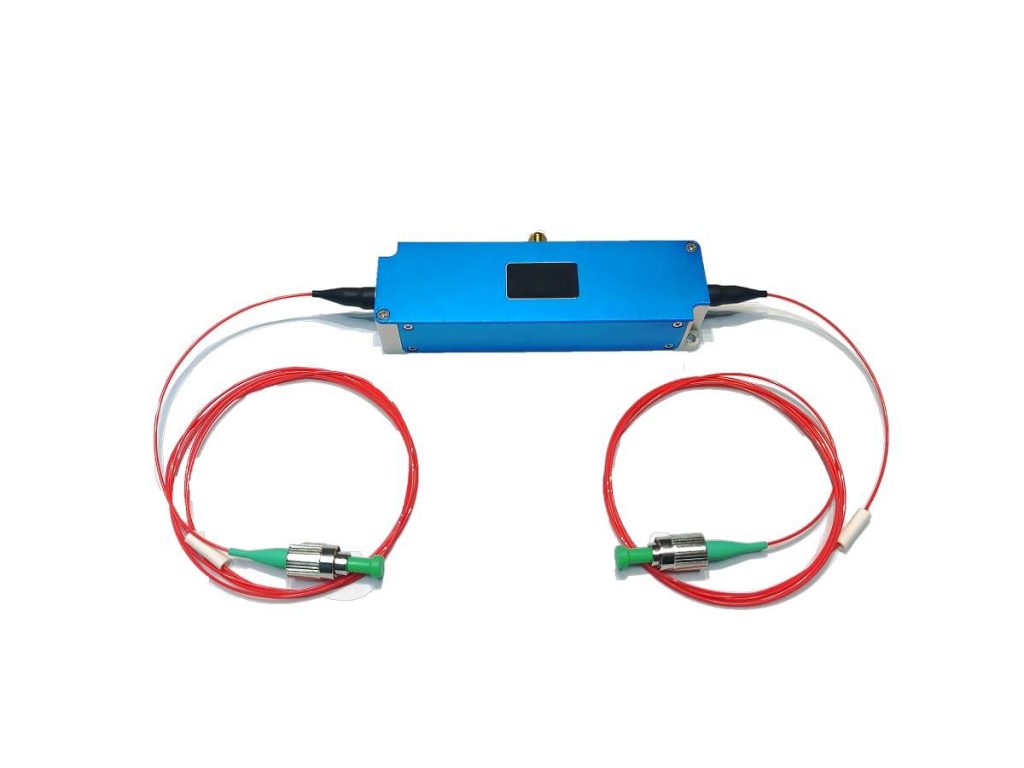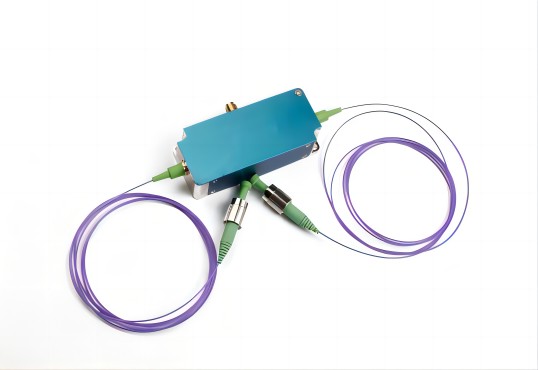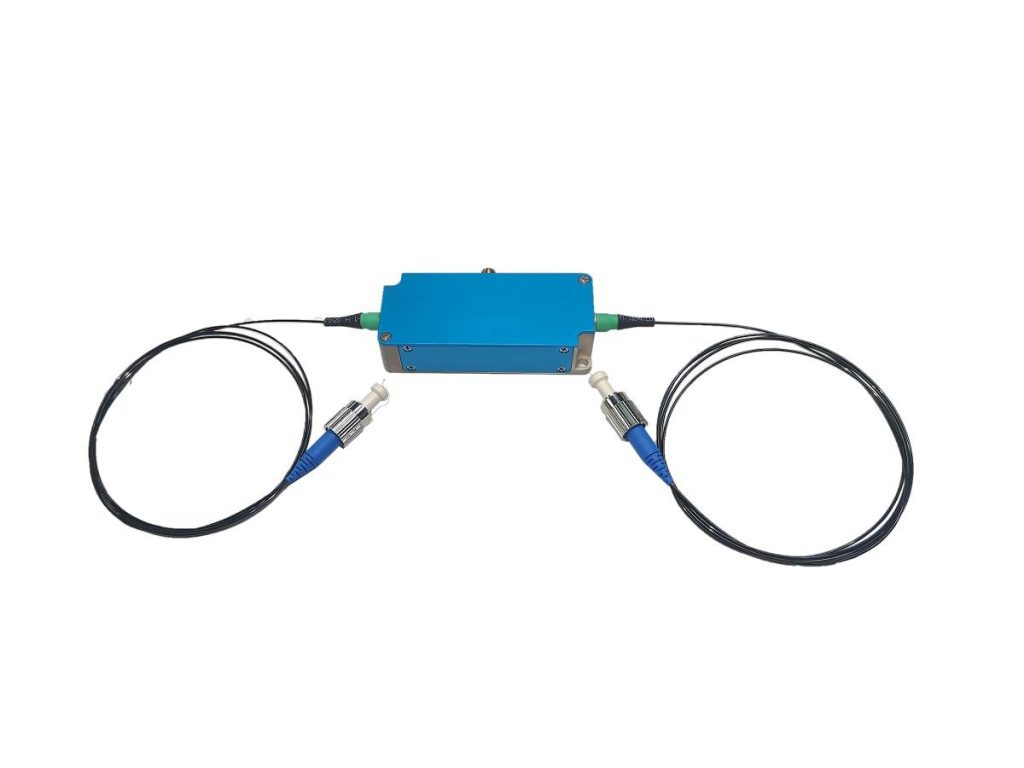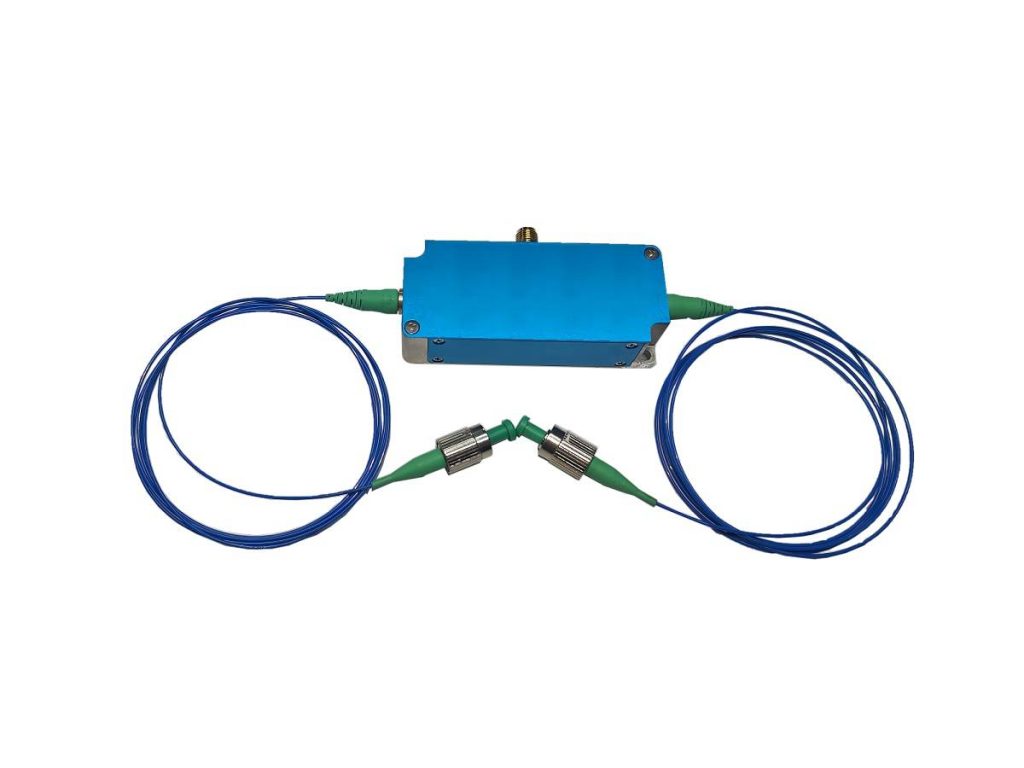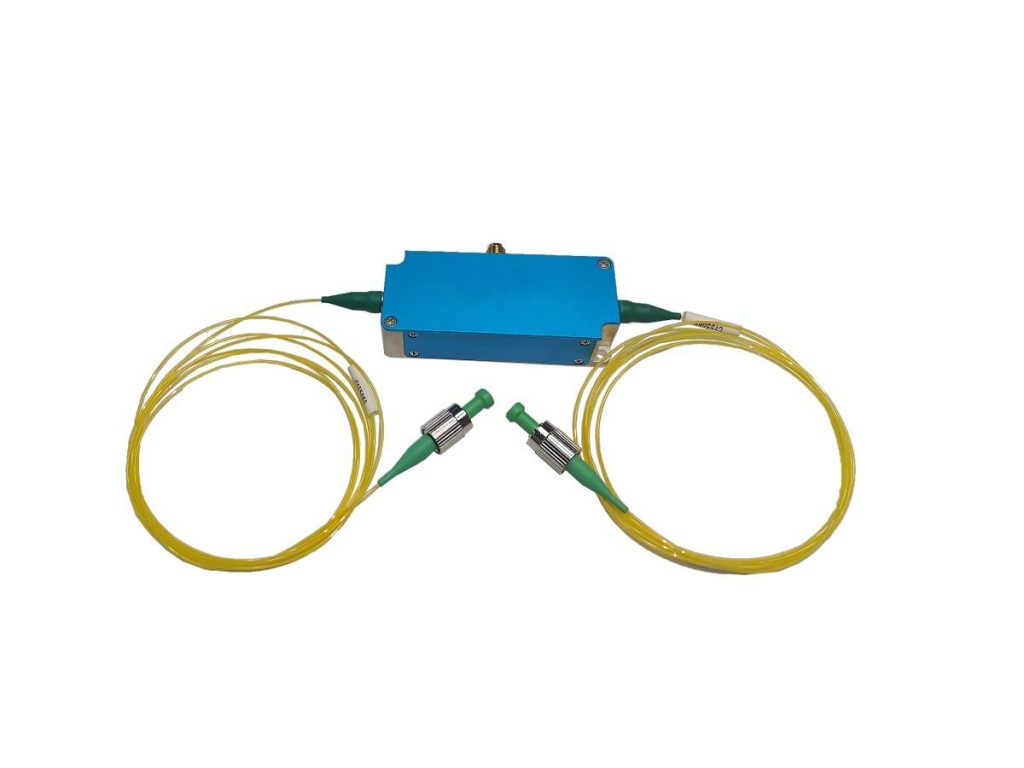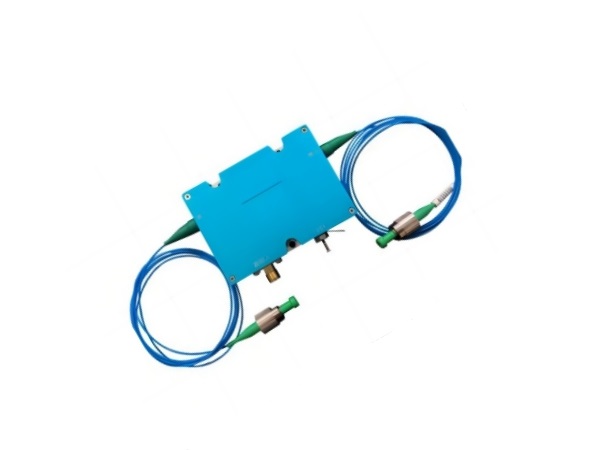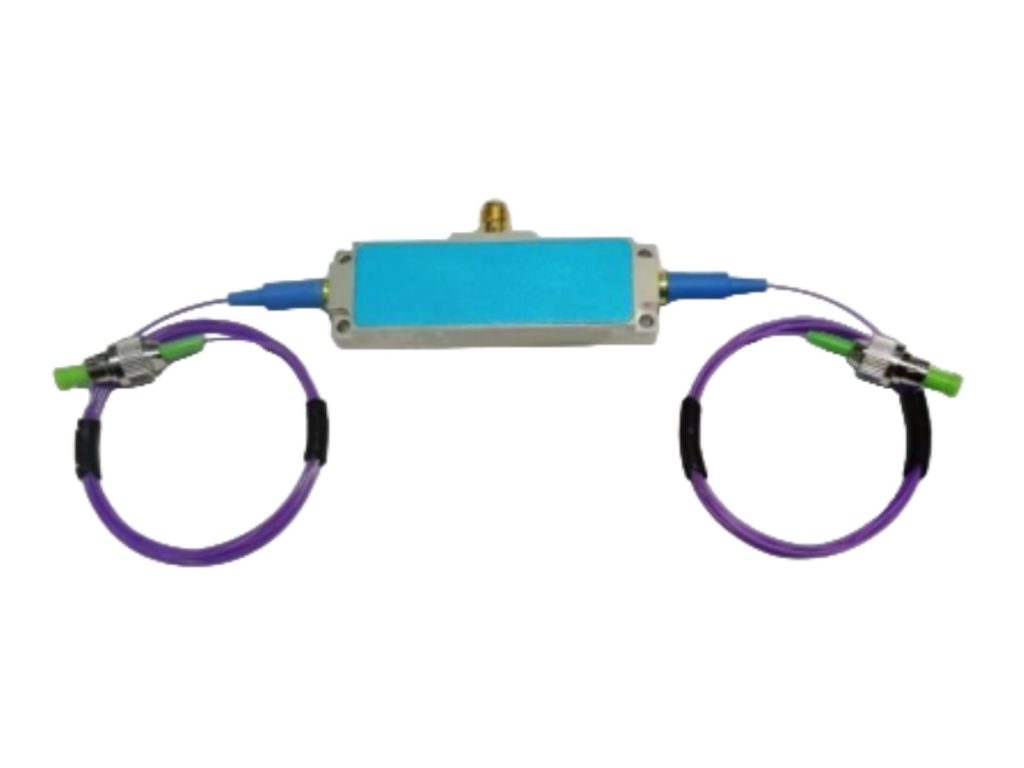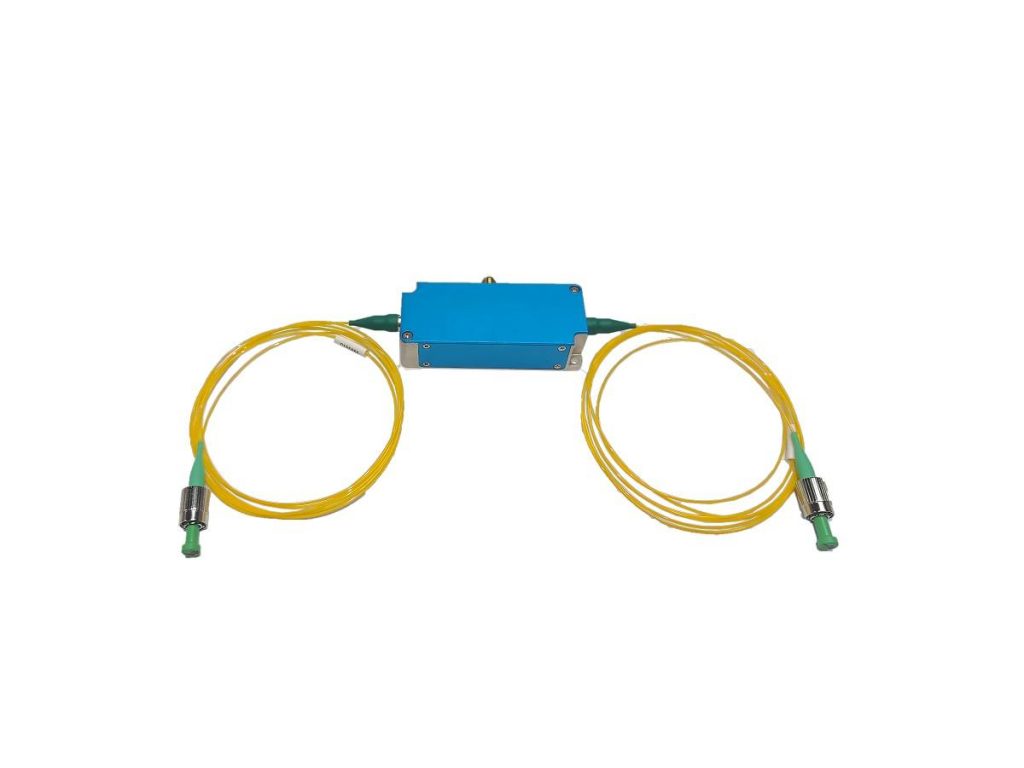
780nm Fiber AOM Series
The acousto optic modulator is a product designed to modulate the intensity and frequency shift of laser beams through the principle of acousto-optic interaction. Operating within the wavelength range from visible light to the infrared region, it features an all-metal structure design, a compact and robust sealed packaging structure, and incorporates innovative packaging technology. These elements contribute to ensuring high reliability and temperature stability.
Characteristics of 780nm Fiber AOM Series
- Short response time
- Low insertion loss
- High extinction ratio
- High-temperature stability and reliability
- Small size
Applications of 780nm Fiber AOM Series
- Q-switched fiber laser
- Laser Doppler coherent application
- Ultra-fast laser frequency reduction menu
- Linear frequency modulation
Ordering Information of 780nm Fiber AOM Series
This indicator is a typical optical wavelength indicator, and other wavelengths and frequencies can be selected
| Parameter | Unit | SGTF80-780-1P | SGTF150-780-1P | SGTF200-780-1P | SGTF400-780-1P |
| Insertion loss | dB | <3 | <3.5 | <3.5 | <4 |
| Rise time | ns | <40 | <25 | <12 | <8 |
| On-off extinction ratio | MHz | 80 | 150 | 200 | 400 |
| 3dB frequency shift bandwidth | MHz | >16 | >30 | >40 | >80 |
| Wavelength | nm | 780 (Typical value) | |||
| Optical power | W | ≤0.5 | |||
| On – off extinction ratio | dB | ≥50 | |||
| Polarization extinction ratio (PM device) | dB | ≥20 | |||
| Polarization dependent loss(SM device) | dB | <0.5 | |||
| Driving power | W | <2 | |||
| Fiber type | – | PM780 | |||
| Optical fiber connector | – | FC/APC | |||
| RF input joint | – | SMA | |||
| Fiber length | m | >1 | |||
| Input impedance | Ω | 50 | |||
| VSWR | – | <1.3:1 | |||
| Package | – | FA/FH | |||
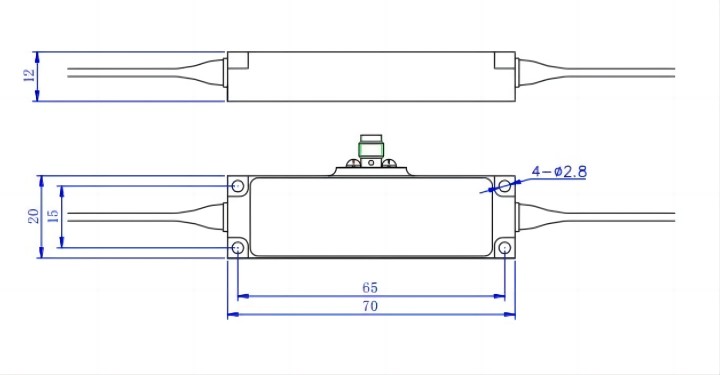
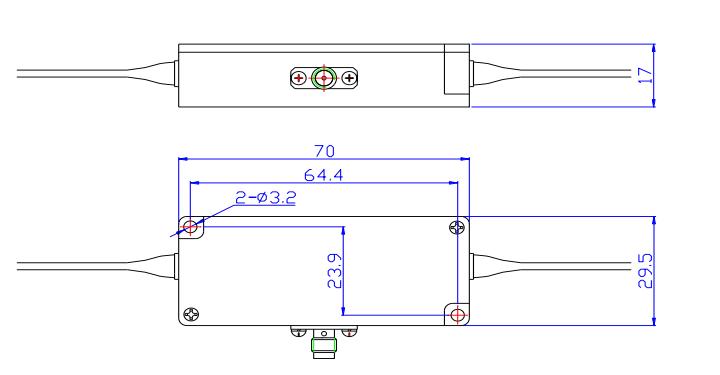
Low-power N-type Acousto Optic Driver for 780nm Fiber AOM Series

An acousto-optic driver is a radio frequency (RF) driver designed to drive acousto-optic modulators and frequency shifters with an output power of less than 3W. The driver generates a radio frequency signal that is used to generate ultrasonic waves in the crystal of an acousto-optic device. The modulation, deflection, or tuning of the beam depends on the frequency and power of the applied RF signal. With an all-metal housing and innovative packaging technology, efficient heat dissipation is achieved to ensure optimal drive performance.
| Supporting drive | The model (SGXXXX-33-N-ab) uses “X” to indicate the frequency shift function, “Y” for modulation, and “T” for additional modulation functionality. The “XXX” denotes the operating frequency, with “33” corresponding to RF output power. “N” specifies the package type. The letter “A” is associated with a power supply voltage of 24V (“1”) or 12V (“2”). The letter “b” designates the modulation type, where “D” stands for digital TTL modulation, and “A” represents analog modulation. | |||
| SGT80-33-N-1D SGT80-33-N-1A1 SGT80-33-N-1A5 | SGT150-33-N2-1D SGT150-33-N2-1A1 SGT150-33-N2-1A5 | SGT200-33-N-1D SGT200-33-N-1A1 SGT200-33-N-1A5 | SGT400-33-N2-1D SGT400-33-N2-1A1 SGT400-33-N2-1A5 | |
Performance of Low-power N-type Acousto Optic Driver on Fiber AOM
- Small size
- Fast response time
- Low power consumption
- High-temperature stability and reliability
| Item | Unit | Performance | |||
| Specifications of modulation input interface | |||||
| Modulated signal input | – | Digital modulation (high level 3.3-5V; low level 0-0.2V@1k Ω) | |||
| Analog modulation (A1: 0-1V@50 Ω) | |||||
| Analog modulation (A5: 0-5V@1k Ω) | |||||
| Modulated signal input impedance | Ω | – | |||
| Interface | – | SMA | |||
| RF output interface specification | |||||
| Output signal frequency | MHz | 80 | 150 | 200 | 400 |
| Frequency stability | ppm | 20 ( 1 Special) | |||
| Output signal power | W | <2 | |||
| Rise and fall time | ns | <25 | <20 | <10 | <7 |
| Switching ratio | dB | ≥60 | |||
| Harmonic suppression ratio | dBc | >25 | |||
| Signal output standing wave ratio | – | ≤1.3 | |||
| Interface | – | SMA | |||
| Complete machine specification | |||||
| Maximum power consumption | W | 10 | |||
| Working voltage | Vdc | 24±1V(Optional 12±0.5) | |||
| Power interface | Through core capacitance (core wire is connected to positive, solder lug is connected to negative) | ||||
| Package | – | N/N2 | |||
